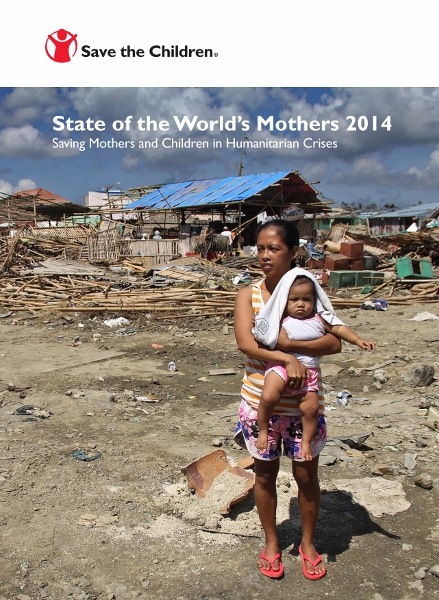Vietnam ranked 93rd on the best places in the world to be a mother
Vietnam is ranked 93rd on Save the Children’s 2014 Mothers’ Index – an annual ranking of the best and worst places in the world to be a mother. Despite falling seven spots on the index, the country remains ahead of regional neighbours Philippines, Indonesia, Cambodia, Laos and Myanmar.

The index is a part of the children’s aid agency’s annual State of the World’s Mothers report, now in its fifteenth edition, comparing 178 countries around the globe, showing which are succeeding – and which are failing – in saving and improving the lives of mothers and their children. Overall, Finland was ranked the best place to be a mother for the second straight year and Somalia came in last.
The report shows that maternal and child mortality in the most challenging countries of the world can be dramatically cut when efforts are made to improve services for mothers and children. Over the past 15 years, Vietnam has seen maternal mortality cut in half, child mortality decreased by a quarter, expected years of schooling increased by 1.5 years, and gross national income per capita increase almost four-fold.
“Vietnam has made tremendous progress in maternal and child health over the past 15 years. This is a result of strong political will and willingness to invest in healthcare, amongst other essential services for children,” says Gunnar Andersen, country director for Save the Children in Vietnam. “But we should also be concerned about the dip in its rankings, which is caused by a rise in number of children dying before fifth birthday, from 1-in-67 to 1-in-43 live births.”
This year’s State of the World’s Mothers report focuses on mothers in humanitarian crises in order to better understand and respond to their needs. Mothers in humanitarian crises are often faced with many obstacles to keep their children healthy – such as physical and economic access to essential services – while their own vulnerability to poverty, malnutrition, sexual violence, unplanned pregnancy and unassisted childbirth greatly increases.
“Vietnam is vulnerable to destructive typhoons and seasonal floods, which has become more severe in recent years with climate change. It has caused widespread destruction of homes, losses in crops, livestock and damages to other assets such as tractors in the worst-affected areas, which in turn can cause a spike in malnutrition, school dropouts, and a decrease in usage of paid health services,” said Gunnar Andersen.
Save the Children has been working in Vietnam for about 20 years, responding to all major disasters in the country, most recently in Typhoon Wutip and Typhoon Nari. The children’s aid agency provided the worst-affected children and families with cash grants in the aftermath of those disasters, to help them repair homes, buy essential food and medicine, as well as to continue sending their children to school.
To ensure protection of mothers and children in the aftermath of disasters, Save the Children is calling upon States and civil society to:
- Ensure that every mother and newborn living in crisis has access to high quality health care
- Build the resilience of health systems to minimise the damaging effects of crises on health
- Develop national and local preparedness plans tailored to respond to the specific needs of mothers, children and babies in emergencies
- Ensure adequate financing and coordination to timely respond to mothers and children’s needs in emergencies
 Vietnam
Vietnam